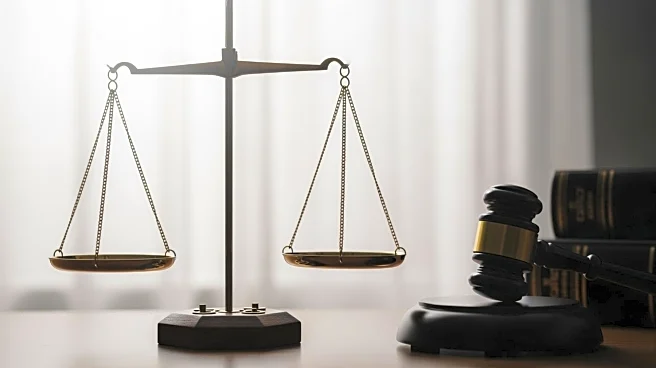What's Happening?
During a virtual oral argument at the U.S. Court of Appeals for the Sixth Circuit, references were made to the possibility of President Donald Trump serving a third term. The discussion arose in the context
of a case concerning gun buyers in Michigan bypassing FBI background checks with concealed-carry permits. Attorney Robert J. Olson and DOJ attorney Sean R. Janda both alluded to a new administration potentially taking office in 'three years or seven years,' indirectly suggesting a third term for Trump. These comments followed Trump's recent statement expressing interest in running for a third term, despite constitutional limitations.
Why It's Important?
The references to a potential third term for President Trump highlight ongoing discussions and speculation about his political future. While the U.S. Constitution limits presidents to two terms, some supporters have proposed alternative scenarios to circumvent this restriction. The implications of such discussions are significant for U.S. politics, as they could influence future electoral strategies and legal interpretations of presidential term limits. The case itself, concerning gun background checks, underscores broader debates about gun control and regulatory practices in the U.S.
What's Next?
The court's decision on the Michigan gun background check case could set a precedent for similar cases nationwide. Meanwhile, discussions about Trump's potential third term may continue to surface in political discourse, potentially affecting future election campaigns and party strategies. Legal experts and political analysts may further explore the constitutional implications and feasibility of such scenarios.
Beyond the Headlines
The notion of a third term for President Trump raises ethical and legal questions about the interpretation of constitutional limits on presidential terms. It also reflects broader political dynamics, as supporters seek ways to extend Trump's influence in U.S. politics. The case at hand, involving gun background checks, highlights ongoing debates about balancing individual rights with public safety concerns.










